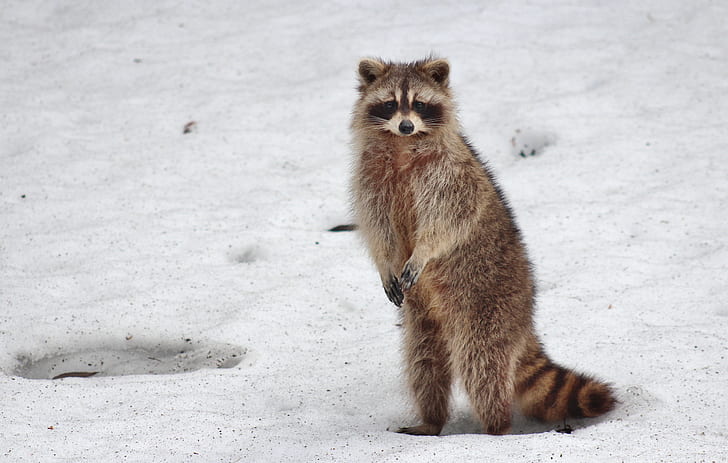Raccoons are nature’s little bandits but do not let those cute faces and fluffy tails fool you. They are masters of survival, especially in winter. Sometimes their survival means they can get too comfortable around your neighbourhood, and when that happens, it is best to let our Durham raccoon control experts at Skedaddle relocate them safely without harm. Do you want to learn more about how raccoons survive the long, cold months? Keep reading to get answers to your questions about these curious animals and how they spend their winters.
Where They Live
Unlike some other creatures, raccoons do not spend a lot of time building or digging a safe place to rest. Raccoons are not too picky when it comes to their living arrangements. Sometimes, they look for a hollow tree where they have protection from the wind, snow, and cold temperatures. Other times, they may find a cave or even the burrow of another animal to take over. Also, as your parents may know, raccoons are fond of the warmth and protection they can find in the attic or crawlspace of a human home.
If you do see a raccoon near your house, tell a parent or adult who can contact a wildlife control company. No matter how cuddly raccoons may look, they are still wildlife. You do not know how a raccoon may behave when it is scared, and your safety is the most important thing.
What They Eat
Do you know what an omnivore is? Any animal or person that eats both plants and animals is considered an omnivore, and this includes raccoons. They eat anything from plants and seeds to eggs and insects. In the winter, food can be hard to find, so raccoons may even eat acorns or other small mammals. They can also be attracted to the food that people put in the garbage.
Let your family know how to keep the trash cans from becoming a raccoon buffet by making sure to throw food and other waste away in the bin and to put lids on top that raccoons cannot open. You do not want to make it easy for them and their wildlife friends to get used to human food to make it through winter.
How They Stay Warm
That is an easy one: Raccoons wear fur coats! In fact, their coats get thicker in the winter to give them an extra level of protection from the cold. While they do not hibernate as bears do, raccoons do spend time resting in what is known as torpor. In this state, these masked critters may sleep and rely on fat that they store in their tails to keep them going until their next meal. Raccoons do wake up after about six weeks to look for food because they do not keep food in their dens the way that squirrels do.
Imagine being a sleepy raccoon and waking up after a few weeks; you would be hungry too! They eat what they can find, and in winter, the best food might be in your family’s trashcan. That is another reason why you should keep your distance if you see a raccoon and its family near your home looking for tasty treats.
When You Need Durham Raccoon Control
Raccoons and people can live together in peace, but not in the same home. If you see raccoons outside during winter, they may have already found a warm space that is too close for comfort. Do not try to touch them, and have your parents call Skedaddle Humane Wildlife Control. Our experts know how to handle raccoons to protect them from getting hurt while keeping you and your family safe and healthy. Our website has lots of helpful information about other animals that may think your home is the perfect place to raise their families and how we can move them carefully.




